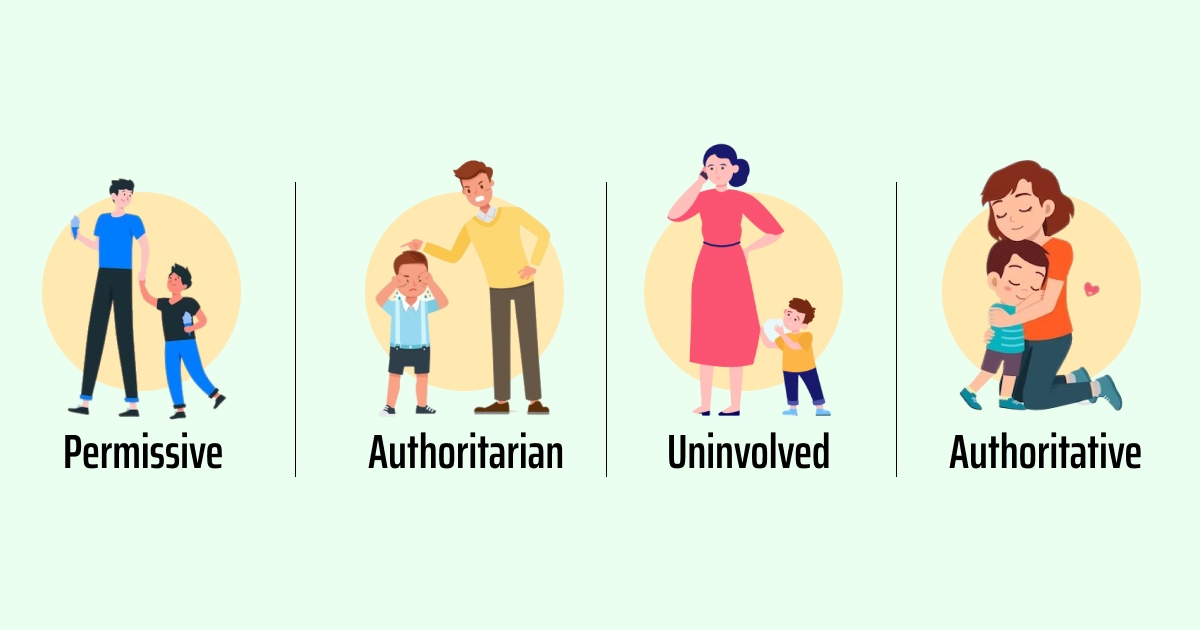According to a study by the Centers for Disease Control and Prevention (CDC), 6.1% of teenagers aged 12 to 17 felt depressed, and 10.5% felt anxious. These numbers show that children’s mental health is at severe risk and an urgent need for helpful solutions.
One way to help is through mental health-boosting activities for children outside of school. These activities can give them a good way to use their energy and imagination, and they also help them feel better emotionally. They make friends, learn to work together and find better ways to handle tough situations.
In this blog post, we’re going to talk about 10 great activities that can make a big difference in how kids feel. Whether it’s playing sports with a team, where they learn to be strong and work together, or doing art, which lets them express their feelings, there are lots of ways to help kids feel happier and healthier.
Let’s make mental health not just a box to tick, but a journey to enjoy – shall we?
Benefits of Activities For Children’s Mental Health
Engaging in extra-curricular activities for children offers a plethora of advantages for children’s mental well-being.
Let’s take a closer look at the key benefits these activities offer for children’s mental health:
1. Builds Social Interaction and Support
Engaging in extra-curricular activities for children helps in building interaction with peers outside of the classroom, fostering friendships and a sense of belonging. According to experts from the American Academy of Pediatrics (AAP), these social connections serve as crucial support networks that can help children cope with stress and adversity.
2. Helps In Improving Emotional Well-being
Pediatricians like Dr. Sarah Winters from Children’s Hospital of Philadelphia emphasize the importance of extra-curricular activities in promoting children’s emotional well-being. These activities provide a structured outlet for children to express their emotions, develop coping skills, and build resilience in the face of challenges.
3. Boosts Self-Esteem and Confidence
Research suggests that participation in extra-curricular activities can boost children’s self-esteem and confidence. Child psychiatrist Dr. David Smith from Stanford University explains that when children explore their interests and talents outside of academics, they gain a sense of accomplishment and pride, contributing to their overall mental health.
4. Stress Relief and Relaxation
extra-curricular activities offer children a break from the pressures of school and homework, providing them with opportunities for relaxation and stress relief.
According to the National Alliance on Mental Illness (NAMI), engaging in activities like sports, arts, or outdoor exploration can help children unwind, recharge, and maintain a healthy balance between academics and leisure.
By fostering social connections, nurturing emotional development, boosting self-esteem, and providing stress relief through mental health-boosting activities for children. Encouraging children to explore and participate in a variety of activities can have long-lasting benefits for their mental health.
Read More: 7 Early Signs of Childhood Mood Disorders and Ways To Treat
10 Effective Mental Health-Boosting Activities For Children
mental health-boosting activities for children play a vital role in the development of self-esteem, resilience, social skills, and academic performance.
These activities can range from sports and arts to academic competitions and clubs, catering to a wide array of interests and abilities.
1. Participating In Sporting Events:
Engaging in sports, whether team-based like soccer and basketball, or individual like swimming and tennis, is pivotal for physical health and children’s mental health. Dr. John Ratey, a clinical associate professor of psychiatry at Harvard Medical School, highlights in his book “Spark” the profound impact of physical exercise on mental health.
It boosts endorphins, improves mood, and reduces symptoms of anxiety and depression. Sports also teach valuable life skills such as teamwork, discipline, and resilience.
2. Making Room For Creative Arts:
mental health-boosting activities for children like painting, music, and drama offer a therapeutic outlet for emotional expression.
Dr. Cathy Malchiodi, a leading expert in art therapy, emphasizes the benefits of art as a form of non-verbal communication that allows children to express complex emotions safely and constructively. Artistic pursuits can enhance self-esteem, provide stress relief, and support emotional regulation.
3. Practicing Mindfulness and Yoga:
Mindfulness practices and yoga are increasingly recognized for their mental health benefits. Dr. Mark Bertin, a developmental pediatrician, advocates for mindfulness in children, noting its ability to improve focus, emotional regulation, and empathy.
Yoga, as supported by research from Harvard Health, can reduce stress and anxiety, enhance concentration, and promote a general sense of well-being.
Read More: 5 Benefits Of A Regular Exercise Routine For Mental Health
4. Enrolling In Academic Clubs and Competitions:
Participating in academic clubs such as chess, robotics, or debate can stimulate intellectual growth and foster a sense of accomplishment.
Dr. Angela Duckworth, a psychologist known for her research on grit and perseverance, finds that such mental health-boosting activities for children cultivate a growth mindset, resilience, and long-term goal setting.
5. Community Service and Volunteering:
Engaging in community service fosters empathy, social responsibility, and a sense of connection. According to Dr. Richard Weissbourd, a psychologist at Harvard’s Graduate School of Education, volunteering helps children develop a strong moral identity.
It increases their empathy and care for the well-being of others, which are key components of positive mental health.
6. Go Outside And Play:
Exposure to nature and outdoor mental health-boosting activities for children are crucial in the early years. Dr. Frances Kuo, a researcher at the University of Illinois, has found that time spent in green spaces can reduce symptoms of ADHD.
It can improve mood and lower stress levels. Activities like hiking, gardening, or environmental conservation projects can provide these benefits while also teaching children about sustainability and ecological responsibility.
Read More: 5 Damaging Impact of Social Media on Children
7. Take Classes For Performing Arts:
Participation in performing arts such as dance, theater, and music can improve self-confidence, communication skills, and emotional intelligence. Dr. James Catterall, a leading researcher on the arts and human development, has shown that engagement in the performing arts is linked to improved cognitive, social, and emotional outcomes in children.
8. Get Into Coding Clubs and Bootcamps:
In the digital age, technology-based activities offer unique opportunities for problem-solving and creative expression and an unique way to improve children’s mental health.
Dr. Mitchel Resnick, Professor of Learning Research at the MIT Media Lab, advocates for coding and digital literacy as means of mental health-boosting activities for children.
According to Dr. Resnick, this teaches children to reason systematically, and work collaboratively—skills that are beneficial for mental health and overall development.
9. Explore Different Languages and Cultures:
Learning new languages and exploring different cultures can broaden perspectives and enhance cognitive flexibility for children’s mental health. Dr. Ellen Bialystok, a cognitive neuroscientist, has found that bilingualism can improve executive functioning and delay the onset of dementia.
Cultural clubs can also promote inclusivity and appreciation for diversity, contributing to a more empathetic and socially aware mindset and can help in improving your children’s mental health.
Read More: Why Is Parent Engagement In Schools Important? 10 Hacks For Busy Parents
10. Chess and Strategic Games:
Chess and other strategy games challenge the mind, improve cognitive skills, and teach patience and foresight. Dr. Robert Ferguson, a researcher in the field of cognitive development, has documented the positive effects of chess on children’s problem-solving abilities.
According to Dr. Ferguson, it can improve critical thinking, and even mathematical skills, which can translate into greater academic success and mental agility.
You need to encourage participation in these activities while also being mindful of the child’s interests and not overloading them with too many commitments. Incorporating these activities into a child’s routine can provide a balanced approach to enhancing mental health.
Read More: What Is A Single Parent Family? Understanding It’s Advantages and Disadvantages
A Word From Mind Family
We believe that mental health-boosting activities for children are becoming more important in today’s world. By providing avenues for self-expression, social interaction, and skill-building, these activities can make a significant difference in children’s well-being.
We encourage parents and caregivers to explore the diverse range of activities mentioned in this article and consider incorporating them into their children’s routines. Remember to prioritize your children’s mental health and avoid overwhelming them with too many commitments.
Let’s work together to make mental health not just a checkbox but a fulfilling journey for our children to enjoy and thrive in.
Frequently Asked Questions (FAQs)
1. What are the benefits of extra-curricular activities for children?
Extra-curricular activities for children offer benefits such as improved self-esteem, social skills, and academic performance, along with reduced stress and enhanced emotional well-being.
2. What are some mental health-boosting activities for children?
mental health-boosting activities for children include sports, arts, mindfulness practices, academic clubs, community service, outdoor activities, performing arts, technology clubs, language and cultural clubs, and chess.
3. What are extra-curricular activities for children?
Extra-curricular activities for children encompass a wide range of interests and abilities, including sports, arts, academic competitions, clubs, community service, outdoor activities, performing arts, technology clubs, language, cultural clubs, and strategic games like chess.


















Leave a Reply